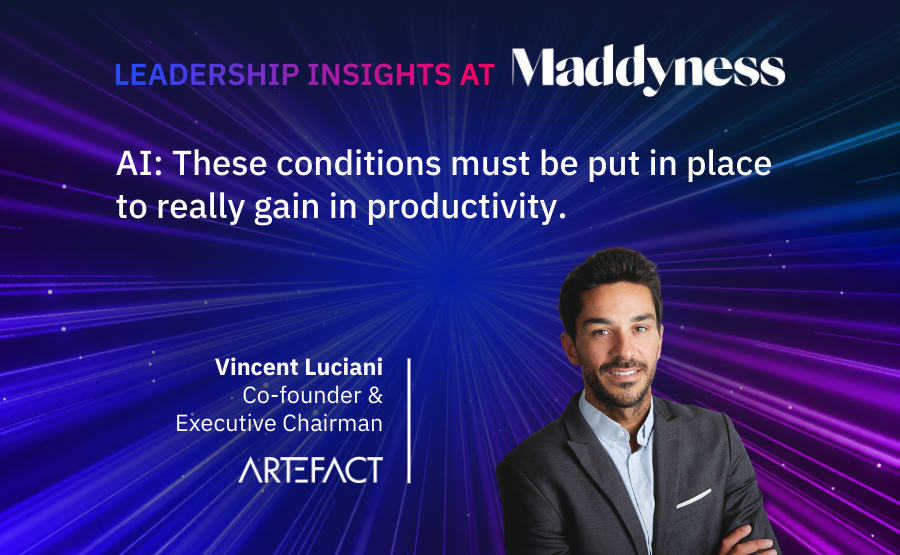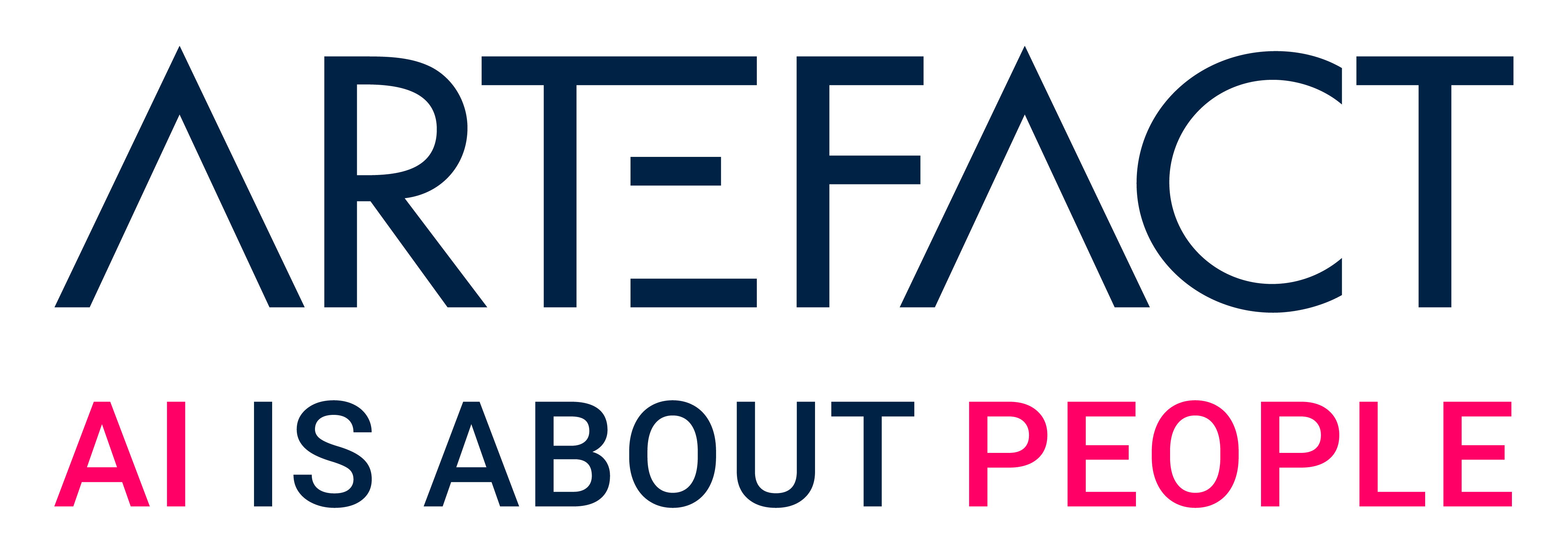Vincent Luciani, co-founder and Executive Chairman of Artefact, emphasizes that artificial intelligence (AI) must be concretely integrated into a company’s collective processes, if it is to deliver real productivity gains. The entrepreneur will be taking part in the MKIA, an event organized by Maddyness and dedicated to AI, at the Salle Gaveau in Paris, on Tuesday April 29.
In this article, Vincent Luciani, co-founder and CEO of Artefact, emphasizes that artificial intelligence (AI) must be concretely embedded into a company’s collective processes in order to truly boost productivity. Luciani will be speaking at MKIA, an event organized by Maddyness and dedicated to AI, taking place at Salle Gaveau in Paris on Tuesday, April 29.
Large companies have been using AI for years. It has already transformed numerous practices and operations: predictive maintenance, sales forecasting, anomaly detection, and more. AI has enhanced analysis, made decision-making more reliable, and accelerated value chains. In these cases, it has been integrated into formalized processes led by specific business units, delivering tangible and lasting impact, but only within highly specific, vertical domains.
Generative AI, on the other hand, has taken a very different path so far: that of individual usage. Employees themselves have taken the initiative. In France, 83% already use it weekly, and 92% of them say they’re satisfied. Their usage varies, often involving simple and repetitive tasks specific to their roles, summarizing documents, writing materials, conducting research, rephrasing content. On average, they save one hour of work per day.
And what do they do with that extra hour? Sixty-six percent say they reinvest it in richer interactions with colleagues or clients. For many, their work has become more collaborative and smoother. Yet the collective impact remains unclear. Usage is too scattered and informal to become a structured lever for company-wide performance.
Integrating AI into the core of the organization
So how do we move forward? By shifting from an individual usage mindset to a process-based approach. Because what truly enables scaling is not the technology itself, but how it’s integrated into the organization’s existing gears. The goal is to identify the most time-consuming, repetitive, or low-value tasks—and to deeply transform them so that generative AI can be deployed in a structured way.
A major French bank, supported by Artefact, has already taken this step. By testing an AI agent in credit approval processes, it reduced turnaround time from one month to one week eliminating dead time, redundant validations, and time-intensive document searches. Companies that embed AI in a structured framework report productivity gains of over 30% compared to those with informal usage gains that extend beyond mere performance metrics, improving customer experience, freeing up team time, and strengthening cross-functional collaboration.
And that’s where the real scale-up happens: when AI is no longer just a personal tool, but a driver of organizational transformation. This shift also redefines the nature of work. Seventy-five percent of users report feeling more autonomous. One in three employees says they’re now doing things they couldn’t do before. AI becomes a learning accelerator, a mobility enabler, a tool for reinventing roles and team dynamics.
But that’s not all: this is not just about automating certain tasks in the short term to boost productivity. AI must also be viewed as an augmentation tool, a lever for enhancing skills, expanding decision-making capacity, creating new roles, and supporting deep, long-term transformations in the way we work. It’s up to companies to set the dial, depending on their strategic vision: deciding what should be automated to free up time, and what should be augmented to empower people.
Because the fundamental challenge is not how to adopt AI, but how to adopt it sustainably, for the next 10 to 20 years. This calls for a long-term vision and a real investment in learning platforms and skills development. What matters is building the workforce of the future, one that smartly combines human expertise with machine power, and is ready to adapt to the radical changes ahead.
Vincent Luciani will speak at the panel “Productivity: How to Turn AI into a Lever for Collective Performance,” from 3:00 to 3:30 p.m. at MKIA, Salle Gaveau, on April 29.

 BLOG
BLOG




